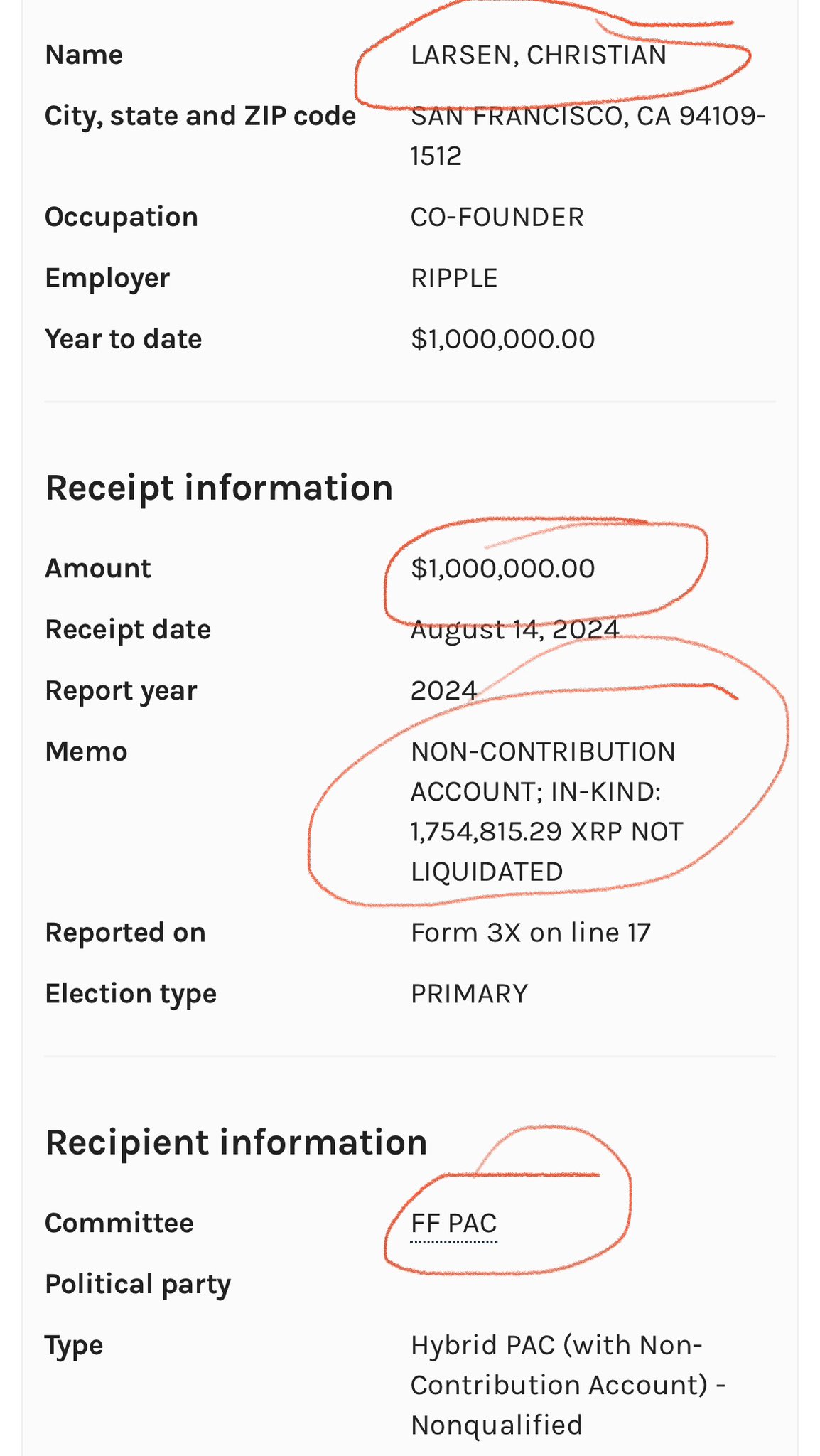Chris Larsen, co-founder of Ripple, just donated $1 million in XRP to a super PAC that’s supporting Kamala Harris.
According to court filings with the Federal Election Commission (FEC), this is the first time a crypto donation has been publicly documented for Harris.
Ripple and Larsen have long pushed for pro-crypto candidates to take the stage, and this donation is reportedly a part of that mission.
Though they’re not just focused on Harris. Ripple has contributed millions to other political groups in smaller elections who support blockchain innovation and policies that favor the crypto industry.
Major corporate leaders rally behind Harris
Larsen’s one of 87 corporate executives who have publicly endorsed the Democratic nominee. Last month, a letter surfaced with a list of these execs who think Harris is the right candidate to lead the country.
Big names on the list include Aaron Levie, CEO of Box, Jeremy Stoppelman, CEO of Yelp, philanthropist Lynn Forester de Rothschild, José Feliciano, a private equity billionaire, and Twilio co-founder Jeff Lawson.
Other signatories of the letter include DC sports tycoon Ted Leonsis, Snap chairman Michael Lynton, and James Murdoch, former CEO of 21st Century Fox.
The letter said that Harris would uphold the rule of law and create a stable business environment. It was released just before the first presidential debate, clearly timed to drum up support. Safe to conclude that it worked.
SEC and Ripple: The battle continues
Meanwhile, Ripple is still locked in a fight with the SEC, and things have gotten messier. The SEC filed an appeal earlier this month after Ripple scored a win in court.
In August, the court ruled that Ripple’s sales of XRP to retail investors didn’t break securities laws, but the SEC isn’t letting that go easily.
Now Ripple has also filed for a cross-appeal, which means the legal drama isn’t ending anytime soon.
Interestingly, Donald Trump’s odds of winning the election have jumped to 54%, according to crypto prediction market Polymarket, while Harris’s odds sit around 45.6%.
Trump has evidently come out on top when it comes to the crypto community’s favorite. But politics never should have had a place in crypto.
Congressman John Curtis of Utah, speaking at the Permissionless III conference, emphasized the need for bipartisan cooperation. If crypto becomes partisan, it will be much harder to pass legislation that actually favors the industry.
Curtis also called on industry professionals to educate lawmakers, many of whom don’t fully understand the complexities.
He believes that by providing clear information, the crypto industry can dispel lawmakers’ fear of the unknown and push for regulations that work.
Utah Senator Mike Lee, who spoke alongside Curtis, warned that federal overreach could also be a big problem for crypto.
He’s against the creation of a central bank digital currency (CBDC), which is already facing pushback in some states like Florida and North Carolina.
Lee believes that letting each state decide its crypto policy would create confusion and hurt the industry. He called it “death by 50 cuts.”
He added that, “Cryptocurrency is not a security. Cryptocurrency is not a commodity. Cryptocurrency is used as a medium of exchange. I don’t even think we should tax the capital gain on the transfer of it.”






